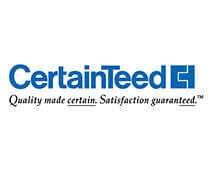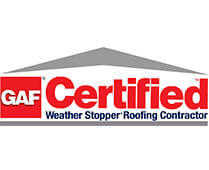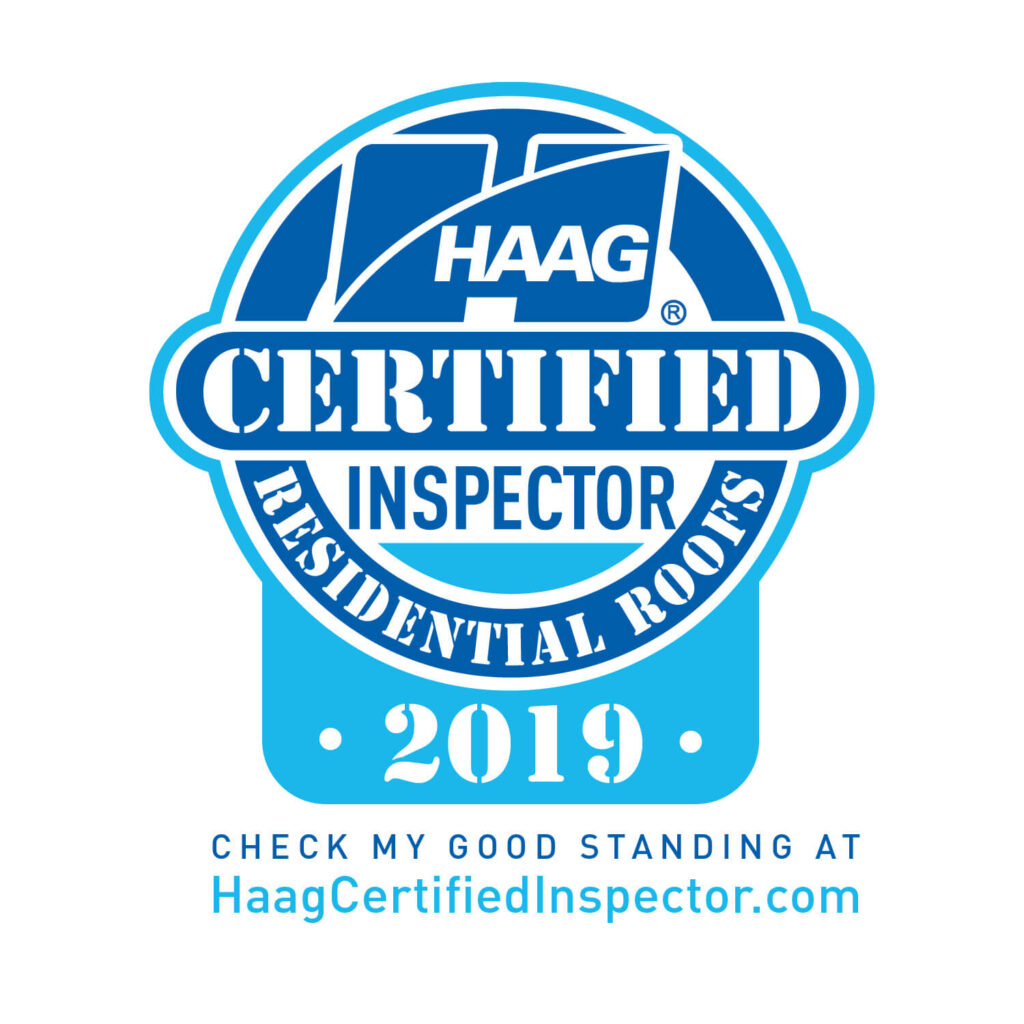
Key Takeaways
- Pick roofing contractors who know Edmonton’s specific weather and local codes so your roof can withstand snow, ice, and temperature fluctuations.
- Check the contractor’s credentials, insurance, and local reputation. Your investment deserves no less.
- Ask for transparent, comprehensive estimates and written contracts that include all expenses, supplies, and schedules to prevent confusion.
- Safety first. Hire contractors who adhere to industry-standard safety protocols and train their crews for on-site work.
- Seek out energy-efficient and sustainable roofing options that save you money over the long term and reduce your environmental footprint.
- Arm yourself with smart questions for prospective contractors and choose those who are transparent, provide warranties, and focus on aftercare.
Roofing contractors near me are independent tradesmen and firms who repair, replace, and construct roofs on residential and commercial properties locally. These local crews are familiar with the climate and construction codes, so they assist with leaks, damaged shingles, and roof renovations. People choose local roofers for quick assistance because they know the territory. Some roofers do new roofs, while others just do repairs or inspections. Most provide complimentary estimates, assistance with insurance claims, and advice to maintain roofs for a longer time. Choosing a reliable roofing contractor results in safer homes and less roof stress. Read on to learn what to check before you hire a roofing contractor, so you can make the right choice.
The Edmonton Edge
Roofing Edmonton is a unique challenge because of the city’s unpredictable weather and stringent building codes. Contractors like The Edmonton Edge, located on 108 Ave NW, play the local leader role by emphasizing materials and techniques that fight against harsh weather. Their experience in flat commercial roofing, metal roofing, and mechanical upgrades provides peace of mind to property owners looking for lasting solutions.
Climate Challenges
Snow and ice are givens in Edmonton. These factors really stress roofs. When snow accumulates, its added weight can put stress on roof structures. Melting and refreezing cause ice dams which force water under shingles and leaks. The quick temperature fluctuations, so typical of the area, cause certain materials to expand and contract. With time, this motion can lead to cracks or separation.
- Snow is heavy and exerts load stress on support beams and decking.
- Ice dams back up water, resulting in seepage and concealed water damage.
- Freeze-thaw cycles make roofing materials brittle or warped.
- Long winters translate to roofs meeting moisture day after day, month after month.
Picking the right products keeps you out of a lot of this trouble. Metal roofing, for instance, sheds snow more easily and withstands freeze-thaw cycles. Contractors who know Edmonton’s weather know which ones last the longest and which ones work best on each type of building.
Code Compliance
Local codes are rigid in Edmonton. They define standards for roof construction and materials. These codes are designed to protect structures against significant snow, wind, and rain. A local contractor such as The Edmonton Edge is well aware of these codes and adheres to them scrupulously. They ensure that all installations comply with local safety regulations and inspections.
If a project disregards these codes, owners can lose warranties or encounter insurance issues. A few insurers require code compliance proof before covering roof repairs. That’s why bringing on a contractor who’s familiar with Edmonton’s rules is essential for your safety and peace of mind.
Material Mastery
Edmonton homeowners have the option of shingles, metal, or flat roofing. Each provides its own benefits. Asphalt shingles are cheap and simple to install. Metal roofs have a much longer lifespan and perform well under extreme weather conditions. Flat roofing is typical for commercial spaces and can be enhanced with mechanical systems.
| Material | Lifespan (years) | Key Performance Feature |
|---|---|---|
| Asphalt Shingle | 15–20 | Cost-effective, easy care |
| Metal | 40+ | Handles snow, resists rust |
| Flat Membrane | 20–30 | Good for repairs, upgrades |
Local builders assist in fitting materials to your budget, design and climate requirements. The Edmonton Edge knows what works best for each building, making it easy for you to select a roof that will last and look good. It’s these types of details that make a difference when handling a tiny home or a massive commercial location.
Vetting Your Roofer

Selecting a roofer in your area involves more than selecting a name from the list. Vetting your roofer is all about checking their credentials, past work, and reputation. It makes sense to vet your roofer; it helps you reduce risk, dodge scams, and ensure your investment is secure. Let’s break down what you should look for.
1. Local Reputation
Begin with reputation. Seek out contractors with proven local track records. Years in business are important. Companies that have been around tend to have a good track record. Inquire whether they have worked on any impressive local projects or given back to community efforts or charities. Memberships in local business groups or trade associations provide additional reassurance. Checking with the BBB or local consumer protection agencies can show complaints or discipline.
2. Proper Credentials
Credentials are a must. Verify Your Roofer A reputable roofer should have the proper licenses and insurance, which you can frequently confirm online or through the government. Look for manufacturer certifications, as these indicate the contractor is trained for certain roofing materials. Liability insurance and bonding are requirements. They guard you against injuries, damage, and getting left in the lurch.
3. Detailed Estimates
Get detailed written estimates that itemize everything — materials, labor, timelines. By vetting at least three quotes, you gain the ability to identify pricing trends and steer clear of bids that are ‘too good to be true’. A proper bid describes the work, start to finish, and details payment terms. Open-book pricing leads to fewer surprises down the road.
4. Warranty Coverage
Warranties are important for peace of mind. Inquire what is covered, the duration, and if both materials and workmanship are covered. Be certain you review the terms. Certain warranties even protect new owners if you sell your home, which can be a selling point.
5. Safety Protocols
Don’t make safety an afterthought. Safety standards, clean job sites and safe practices training for crews must be observed by contractors. Inquire regarding their safety track record and procedures. This safeguards laborers and your home throughout the work.
Warning Signs
Hiring a roofing contractor is a big deal. It’s worth understanding the warning signs before you put pen to paper. Shady contractors are the real deal, with con artists more prevalent than ever, specifically post-storm. Warning signs are high-pressure sales, vague contracts, and contractors who appear out of nowhere. It can help you identify these signs early, so you don’t wait until it’s too late.
High Pressure
Few roofing contractors employ hard-sell tactics that don’t give you time to think or inquire. They might insist that you sign a contract immediately or that “special pricing” is only available if you act immediately. They are intended to hurry your decision and prevent you from conducting your own checks. Good contractors embrace your inquiry and anticipate that you’ll need to read it all carefully. If they won’t let you talk to family or get a second opinion, that’s your warning sign. Trust your gut in the meeting. If you feel pressured or uncomfortable, it’s generally best to back away.
Vague Contracts
A strong contract will itemize all the specifics, including what materials will be used, when the work will commence and conclude, how payments will be made, warranties, and more. If you receive a contract that’s lacking these or uses confusing language, request alterations or clarifications. It’s not unusual for a few contractors to decline to put things in writing or to sugarcoat insurance and licensing. Always request proof of insurance and licenses. If a contractor won’t provide a written contract or glosses over the info, that’s a red flag. It’s smart to have a roof inspection first, which costs $240, before you ink any repair or replacement contract.
Storm Chasers
Storm-chasing contractors who show up in the immediate aftermath of storms might provide quick repairs, but they’re not always looking out for you. They’re out door-to-door, giving you the ‘deal’ or claiming repairs are urgent. Several don’t have a local business address or IPS history. Verify their reputation, request local references, and contrast with established firms. Don’t select someone simply because you want the work completed quickly. Spend some time vetting who you’re bringing in. Local roofers with a good record won’t vanish once the work is complete.
Key Questions

Discovering the perfect roofer involves more than a simple online search. You require solutions that work for your house, your financial plan, and your project objectives. By asking the right questions, you can identify experience, evaluate trustworthiness, and sidestep pitfalls or surprise charges.
About Your Project
Begin by communicating your requirement – repair, complete replacement or an upgrade. Be specific if you have particular needs, such as sustainable materials or if your roof has unusual configurations or attributes. When you discuss the scope, ask for a detailed quote that breaks down each cost: removal of your old roof, labor, materials, disposal and any warranties. This provides you with a ballpark picture of the budget and schedule.
See if they’ve worked on roofs similar to yours. If you have a flat roof or require work during the cold months, you need a contractor who understands what is best for you. Cold weather can affect the way shingles seal, so inquire about their winter installation procedure. Verify that they carry liability and workers’ comp insurance. This covers you should anything happen.
If you’re thinking about a particular brand of shingles, question why a particular line is the right one. A good contractor can describe the difference in cost, performance, and fit for your climate.
About Their Process
Learn about the actions they’ll pursue from beginning to end. Inquire how they’ll manage everything from prepping the site to installing each component of the roofing system, including underlayment, flashing, shingles, vents, and more. Good flashings are essential if you want to avoid leaks, so request information about their procedure.
Inquire how they maintain contact during the project. Will you receive updates? Who do you reach out to with inquiries? If an issue arises, such as concealed water damage, how will they inform you and what price or timeline adjustments should you anticipate? Don’t accept vague responses. If something isn’t clear, probe with follow-up questions until it sinks in.
About Post-Work
When the work is over, inquire about clean-up. Will they handle cleanup and dispose of old shingles? Discover whether they do a final inspection and if they do, what that entails. See if they provide a workmanship warranty and have it in writing. Good contractors provide roof care tips and a maintenance plan to support your new roof’s longevity.
Beyond the Shingles
Roofing contractors don’t just slap on shingles. They inspect the roof’s underlayment and flashing, which assist in preventing leaks and safeguard your home against water damage. Rotten wood, inadequate ventilation and clogged gutters can wreak havoc beneath your roof’s shingles, compromising your roof’s integrity and your home’s comfort. Great contractors think about the entire system, not just what you see from the street. They can detect drafts, recommend insulation improvements and assist in maintaining your home’s safety and utility costs.
Energy Efficiency
- Metal roofing with reflective coating
- Clay or concrete tiles
- Light-colored asphalt shingles
- Synthetic and composite shingles
- Green roof systems
Here’s some interesting information: a heat reflective roof can help keep your house cooler. Request heat-reducing materials from your contractor, particularly if you reside in a warm climate. These selections reduce your cooling expenses in hot months. Over time, an energy-efficient roof can translate to lower energy bills, so the higher initial cost might be worth it. By opting for materials that use fewer resources and last longer, you’re reducing your impact on the environment.
Sustainable Options
A number of contractors now provide roofing from recycled or renewable materials. This might encompass recycled metal, rubber, or plastic along with wood from sustainable sources. Other companies get your old shingles off and send them to be recycled instead of tossed in landfills.
Green roofs, with plants on top, provide insulation and assist local wildlife. They might reduce urban stormwater runoff. Have your contractor tell you what sustainable options work best for your home and climate. The right option can increase your property’s value and promote sustainable environmental efforts.
Insurance Claims
Navigating insurance after roof damage can be tricky. The process frequently requires filing comprehensive claims, submitting photos and conferencing with adjusters. Certain contractors have worked with insurance companies before and will walk you through every step. They might assist you in collecting the required documentation and communicate with your insurer to expedite claims.
Really good contractors record, take crystal clear photos and document the damage for you. They follow up with your insurer to prevent bottlenecks. Such assistance can take a stressful process and make it much more painless for the homeowner.
The Final Choice
Making the decision to select the right roofing contractor is hard for many because it tends to still have sparse information and the pressure of making the optimal choice can be genuine. After weeks or months of search and discussions, the final decision looms large. This decision can influence the destiny of your endeavor and even your sanity for years to come. It’s not simply who gives you the lowest quote or who can begin the earliest. There is a lot at stake and every option has its blessings and dangers.
A good decision begins with great information. Don’t stop at the first couple of names you see online. Peruse reviews, request referrals, and verify each company’s license and insurance. Reputation counts. If you can, speak to former clients to see how the contractor handled challenges, adhered to schedules, and supported their craftsmanship. Some contractors guarantee their work with robust warranties, while others don’t. See what’s covered and for how long. Certain contractors provide five years of coverage, while others could have just one. That point is significant when considering long-term worth.
Price ought to be reasonable, but it shouldn’t be the sole consideration. Sometimes, a low bid means corners are cut or lower-grade supplies. A very high price is not always indicative of better work. Request a definitive, line-item quote. This should itemize all labor, materials, and any add-ons, such as cleanup or dump fees. That way, you know what you’re getting.
Again, at the end, it’s your life — follow your gut. If a contractor appears harried, evades your questions, or leaves you with a bad vibe, it’s perfectly okay to pass. Your priorities, whether timeline, cost, or style, must align with what the builder can provide. Some people prioritize eco-friendly material, while others want the quickest completion. Consider what is important to you and let that be your compass.
Conclusion
Locating a roofer cannot be done with just a quick search. A quality pro will display transparent work history, license verification, and competitive pricing. Seek straightforward actions, such as reading reviews or consulting previous customers. Be suspicious if there’s no written quote or high pressure talk. Don’t forget to inquire about safety, insurance, and clean-up. A good roofer will respond directly, provide actual pictures, and remain transparent about pricing. Choosing the right one leads to less hassle and a roof that endures. Here’s to a neat job and an obvious result. Begin with those little checks and chat with a couple of local pros. Spend a few minutes today and save yourself tremendous headaches tomorrow. Contact reliable roofs in your location and start your project today.
Frequently Asked Questions
What should I look for when hiring a roofing contractor in Edmonton?
Find licensed, insured contractors with excellent local references. Check their experience and online reviews. Trustworthy roofers offer transparent quotes and guarantees.
How can I check if a roofer is qualified?
Request evidence of licensing and insurance. Check their credentials and ask for work samples. Good contractors are upfront and pleased to provide credentials.
What are warning signs of an unreliable roofing contractor?
Look out for ballpark figures, no contract in writing, bad communication, or uninsured. Steer clear of contractors who rush you or demand full payment upfront.
Why is local experience important when choosing a roofer?
Local roofers know Edmonton’s special climate challenges. They know what is most weather resistant, so their roofs hold up longer.
What questions should I ask before hiring a roofer?
Inquire about guarantees, timelines for the work, materials utilized, and safety procedures. Ask about cleanup and who will oversee the work. Straight answers demonstrate professionalism.
Does a roofing contractor need to offer more than just shingle installation?
Yes, leading contractors evaluate ventilation, flashing, and insulation. They suggest long-term roof health solutions, not just covering fixes.
How do I make the final choice between roofing contractors?
Compare written quotes, communication, and reviews. Select the contractor that provides transparency, experience, and a clear warranty for your confidence.
Not what you were looking for? Safe Roofing also offers the following services:
Safe Roofing’s Certifications and Qualifications
Manufacturer Certification: IKO (preferred installer)






